According to a report released in March 2020 by the Department for Environment, Food and Rural Affairs (DEFRA), British households produce over 26 million tonnes of waste each year; around 6.6 million tonnes of this is food waste. Even more shocking is the fact that over 70% of the food waste thrown away annually, is food that could have been eaten. A weekly/monthly trip to the supermarket is something most of us do on autopilot, not really thinking about the wider impact we might be having. However, there are small changes that we could all be making that would greatly help to reduce the amount of household and food waste we produce. Today we’re breaking down some easy ways to make your grocery shop more eco-friendly. Keep reading to find out more!
Did you know? British households produce over 26 million tonnes of waste each year; around 6.6 million tonnes of this is food waste. Click To TweetUse up everything in your kitchen first
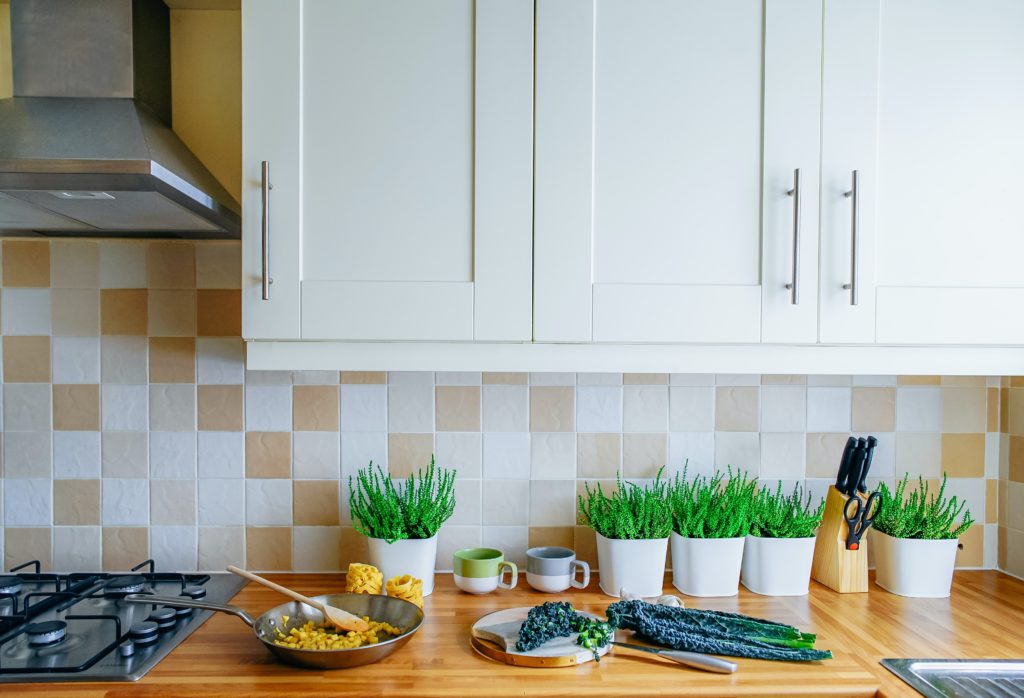
The first step to having a more eco-friendly grocery shop starts at home. Far too often we let the excitement of heading to the supermarket cloud our judgement of how much we actually need. How many times have you bought something, only to open the cupboards and find that you already had it? Go through your cupboards (and the back of the fridge) before you head out shopping. If you have left over produce or ingredients, it’s time to get creative! Head to websites like Pinterest to discover new recipes that you can recreate using what’s already in your kitchen.
Plan your shop ahead of time
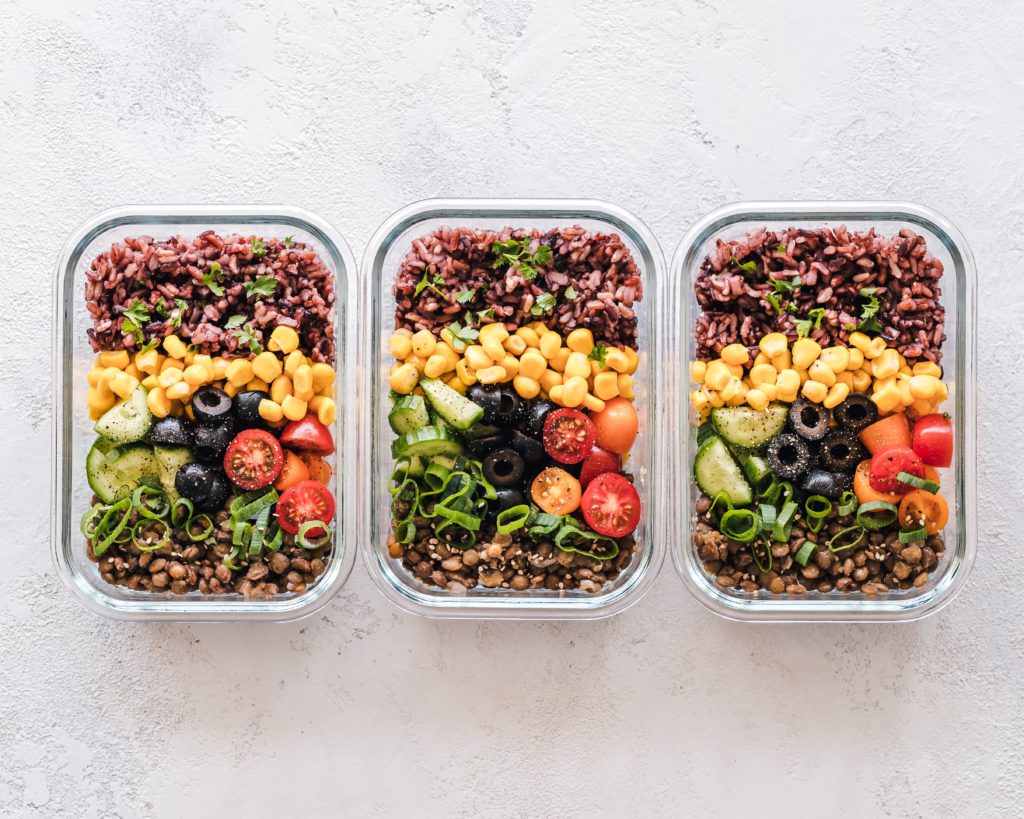
Once you know what you actually need, it’s time to plan. Create a menu for the week or month and decide what meals you want to eat for breakfast, lunch, dinner and anything in between. This will mean you can decide exactly what you need to buy and can avoid purchasing food that you won’t end up eating. Make a thorough list and stick to it! There’s no better feeling than knowing the overnight oats you prepped the night before are waiting for you when you wake up!
Buy only what you need or can comfortably store
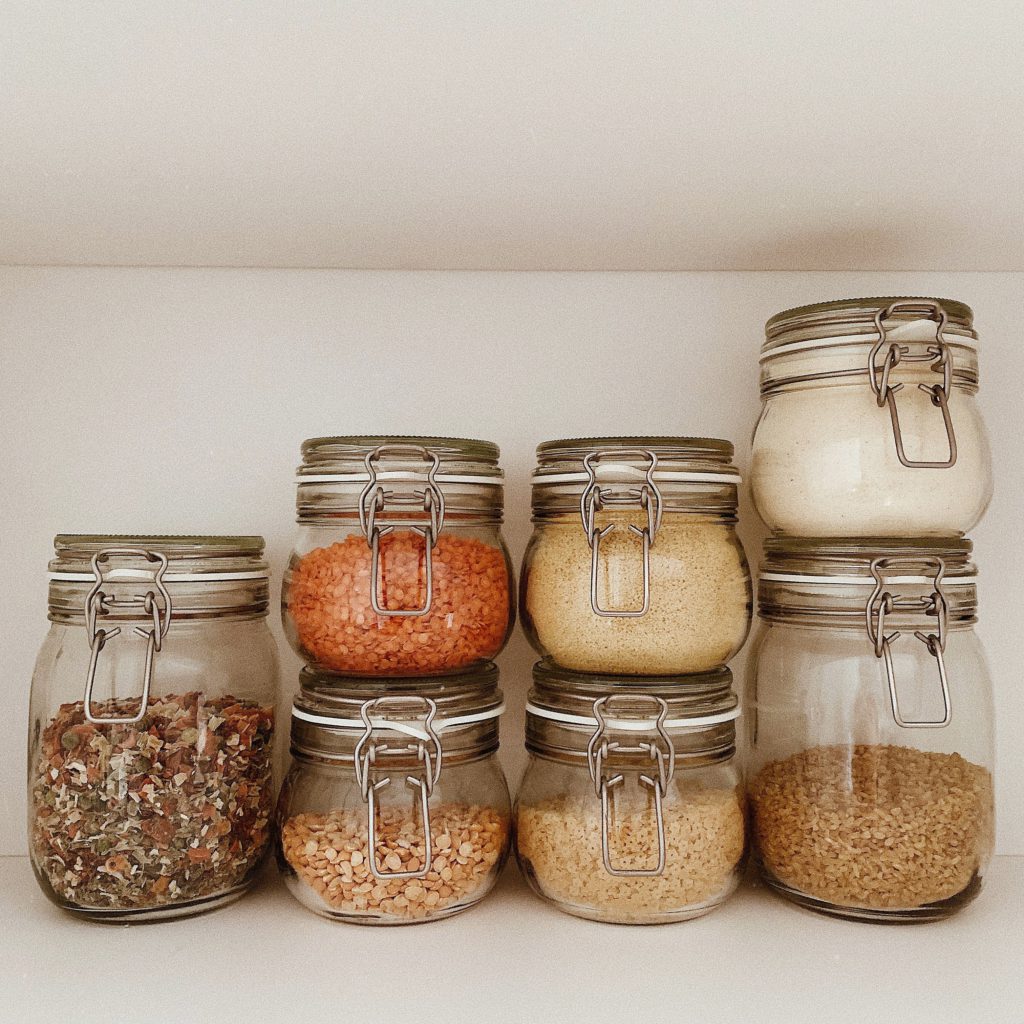
Another way to avoid excess is to only buy what you are able to comfortably store in your home. If you find yourself regularly running out of space in the fridge/freezer, and having to store chilled food in the cupboard, there’s a good chance your food will end up going bad and being thrown away. This can especially be the case if you tend to buy in bulk. Avoid this by knowing the capacity of your home and not buying more than you can keep. If you’re looking for ways to maximise the space you do have, invest in refillable storage jars for your food. Not only do they tend to take up less space than food left in packaging but they also enable you to see exactly how much you have available. And if you are able to visit a ‘zero waste’ store local to you then you can refill your containers and jars without creating any waste- super win!
Use reusable shopping bags
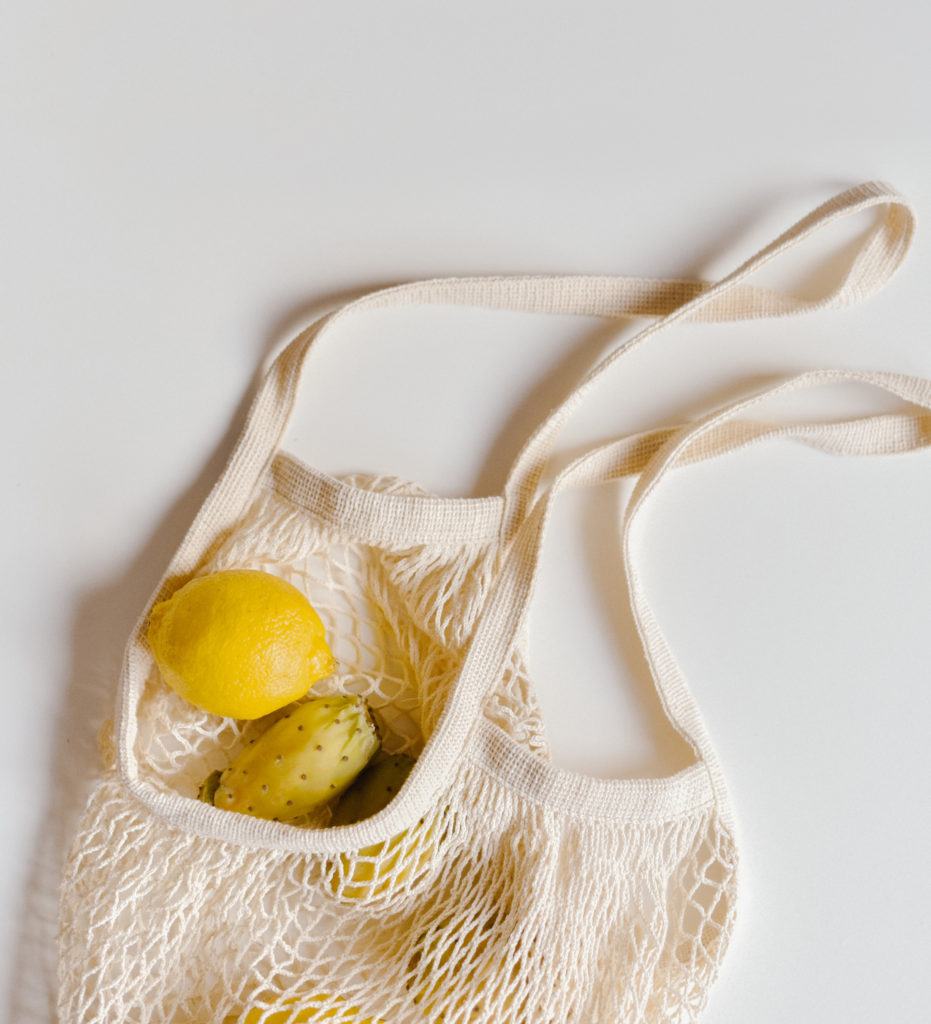
Since the introduction of the 5p bag charge, the sale of single-use plastic bags has reduced by 95% since 2015 (The Guardian, 2020). While this is amazing, we can all slip up now and then, forgetting to bring reusable shopping bags with us. To make this easier, keep your shopping bags somewhere that you can always access them e.g. by the front door, in your car, on your bike, or in your rucksack.
Shop local where possible
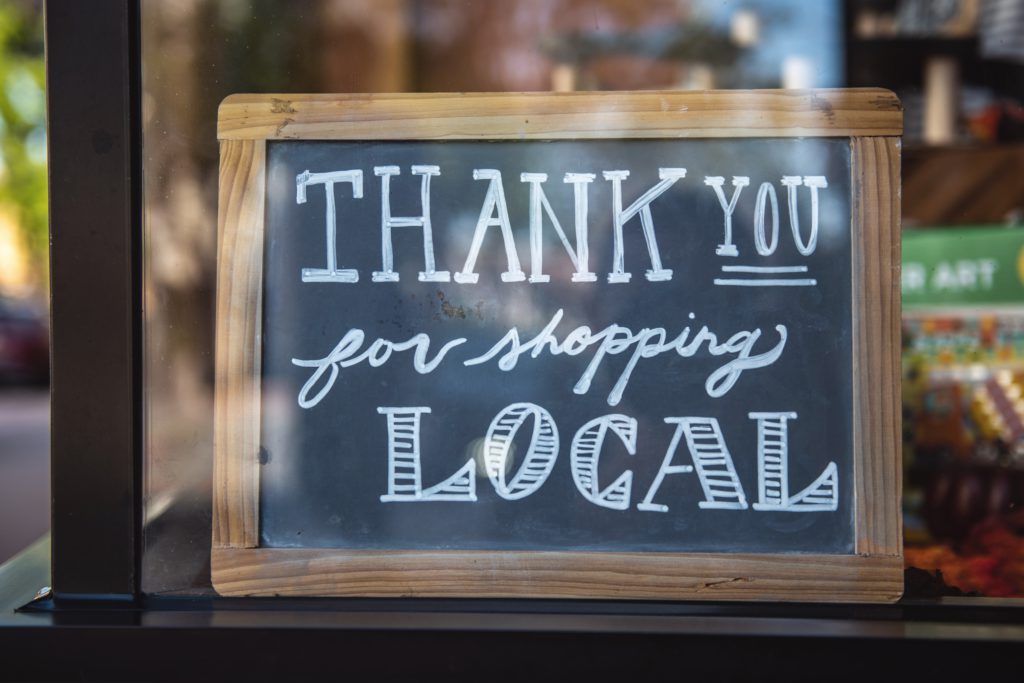
There are several benefits to shopping locally rather than using mainstream supermarkets. Not only are you helping to support your local businesses, but you are also more likely to find loose, fresh produce without the packaging. Shopping locally also means you can avoid a lengthy car trip to the nearest superstore by choosing to stay more close to home. At Veo we work with independent brands around the UK and globally, so you can identify products and support brands close to you.
Buy versatile ingredients that can be used for multiple meals
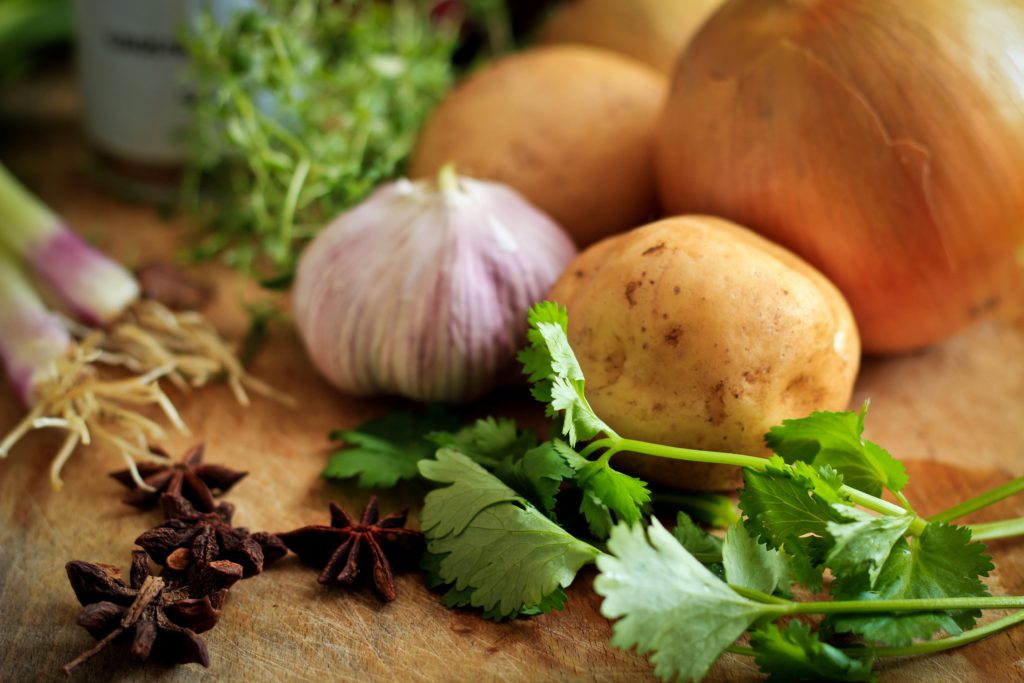
Finally, while it can be fun to try experimental dishes now and then, if you are buying more specialist ingredients than you need, you’ll often end up with leftovers that can’t be used for anything else. Instead, stick to versatile ingredients that can work throughout the month for multiple dishes. This way, you’ll be more likely to use up everything you have without throwing any food away.
Moving towards zero-waste living is never an easy transition so we hope these tips help make the process feel slightly more achievable, no matter what stage you’re at. If you struggle to find eco-friendly grocery swaps at your regular supermarket, we have our very own grocery section here at Veo. Here you’ll find brands that are already doing the work to be sustainable so you can shop with ease knowing you’re helping the planet without compromising on taste or quality.